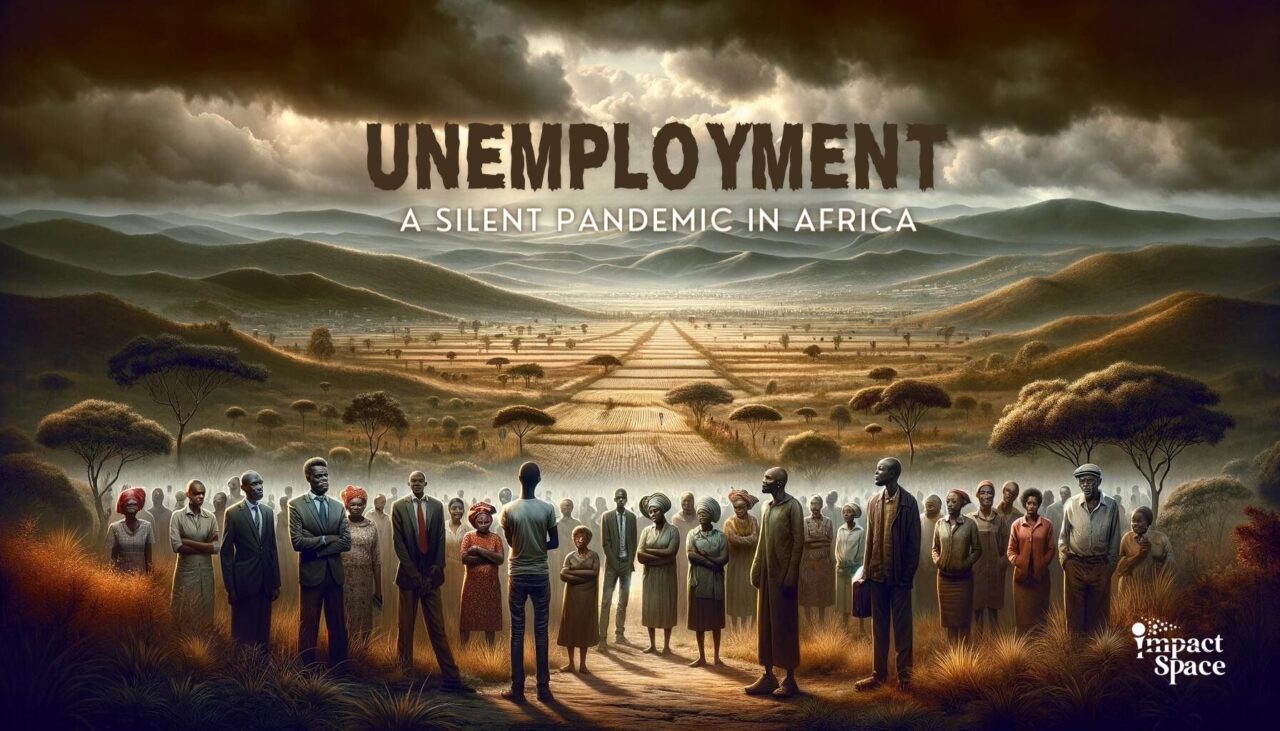Unemployment casts a long shadow across the globe, silently devastating lives and hindering progress.
In 2024, an extra two million workers are expected to be looking for jobs, raising the global unemployment rate from 5.1 per cent in 2023 to 5.2 per cent (WESO Trends 2024).
While headline unemployment rates only tell part of the story, Africa faces even harsher realities with underemployment. Millions across the continent are forced into part-time jobs or the informal sector, often earning well below the poverty line. This silent pandemic, deadlier than any disease, steals dreams and wastes potential. It shrouds a resource-rich continent in despair, starkly highlighting the devastating consequences of joblessness.
Furthermore, unemployment impacts more than just economies; it drives poverty, worsens inequality, and erodes personal identity and purpose. These issues often lead to mental health struggles and contribute to the breakdown of families and communities.
Young Africans are particularly vulnerable, with a projected 11% youth unemployment rate in 2024, as reported by Business Insider. Despite these figures, government efforts have yet to curb the growing unemployment rate, prompting African leaders to enact a seven-point plan to address the issue.
Additionally, women face even greater challenges, with an 8% unemployment rate in 2023 compared to 6.6% for men, underscoring the need for gender-specific employment policies. This reality is further underscored by the staggering statistic that over 50% of young women in southern Africa are unemployed, according to the Population Reference Bureau.
This crisis stretches across the African continent, impacting numerous nations. The following chart spotlights top ten African countries that have been severely affected:

Source: Statista
Rank Country Unemployment Rate
- South Africa 32.1%
- Djibouti 27.9%
- Eswatini 24.65%
- Gabon 21.35%
- Congo 21.3%
- Botswana 20.72%
- Somalia 20.53%
- Namibia 20.37%
- Libya 20.07%
- Sudan 18.05%
Strategies to Combat the Unemployment Pandemic in Africa
Confronting this crisis requires a multifaceted approach:Here are a few approaches:
Education and Training:
Providing individuals with the necessary skills and knowledge to succeed in the job market is crucial. This involves both formal education and vocational training programs tailored to meet the demands of the labor market. For example, offering courses in digital literacy, technical skills, and soft skills such as communication and problem-solving.Impact Space actively engages in educational initiatives aimed at empowering individuals with employability skills. This includes partnering with local educational institutions to offer training programs, workshops, and mentorship opportunities. By providing access to quality education and training, Impact Space equips individuals with the tools they need to pursue meaningful employment opportunities.
Economic Empowerment:
Promoting entrepreneurship, innovation, and inclusive growth is essential for creating sustainable livelihoods. This can be achieved through targeted policies that support small and medium-sized enterprises (SMEs) and initiatives that foster economic participation among marginalized groups. For instance, providing access to microfinance, business development support, and market linkages. At Impact Space, we work closely with grassroots communities to promote economic empowerment. Through initiatives such as business incubation programs, financial literacy workshops, and access to microfinance services, we empower individuals to start and grow their own businesses. By supporting entrepreneurship and innovation, Impact Space contributes to the creation of sustainable livelihoods and economic resilience.
Infrastructure and Technology:
Investing in infrastructure, technology, and sustainable development is crucial for creating new job opportunities and driving economic growth. This includes investments in sectors such as renewable energy, transportation, and digital infrastructure. For example, developing renewable energy projects that create jobs in construction, maintenance, and operation.Impact Space recognizes the importance of infrastructure and technology in fostering economic development. Through initiatives such as the Solar Energy Program, Impact Space supports entrepreneurs and innovators working on sustainable solutions to environmental challenges. By investing in green infrastructure and technology, Impact Space contributes to job creation and sustainable development in communities across Africa.
But perhaps the most critical element is a collective commitment from all sectors of society. We need solidarity, empathy, and compassion. We must recognize the inherent worth and dignity of every individual, regardless of their employment status.
Let’s take a step towards a better tomorrow by acknowledging this issue and taking action.
#unemployment #socialissues #potential #solutions



